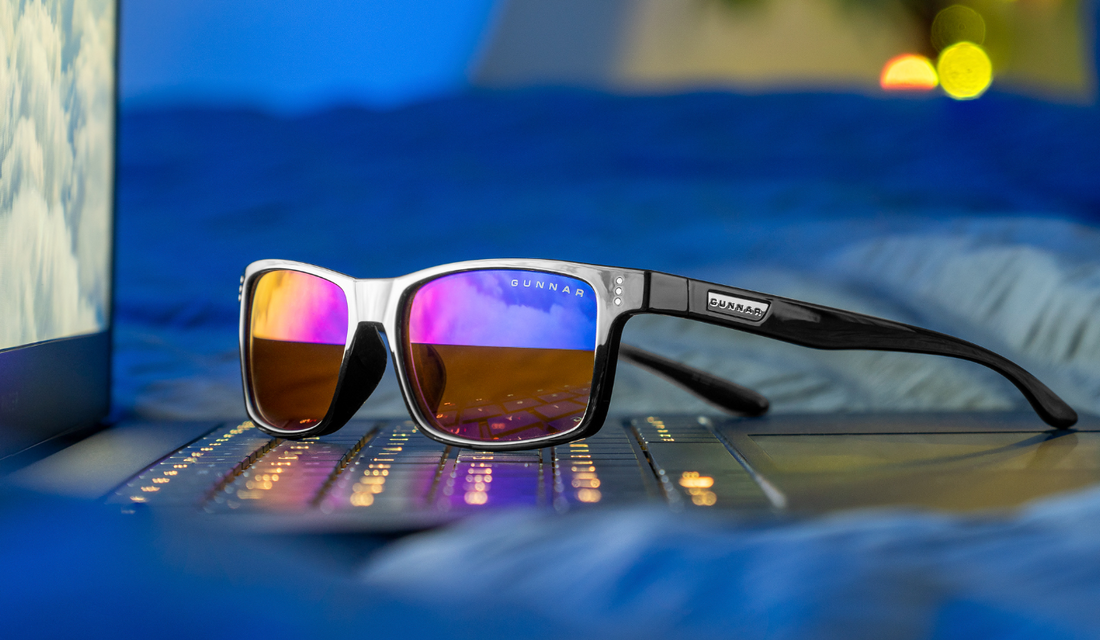In the age of perpetual screen glow, where smartphones are extensions of our hands and laptops our constant companions, a curious phenomenon has emerged: eye twitching. Those involuntary muscle spasms around the eyes, once rare and fleeting, seem to be on the rise, mirroring the relentless march of our digital lives. So, is there a connection? Can screen time truly cause our eyelids to dance a jig of discontent?
Decoding the Twitch: A Symphony of Potential Culprits
Before we point fingers at our glowing rectangles, let's acknowledge the orchestra of factors that can trigger an eye twitch:
- Stress: Our modern lives are stress cocktails, and stress loves to manifest in physical ways, including eyelid spasms.
- Fatigue: Sleep deprivation is another maestro of mischief, causing the delicate muscles around our eyes to rebel with a twitch or two.
- Caffeine and alcohol: These substances can act as excitatory conductors, amplifying muscle twitches.
- Eye strain: This villain lurks in the shadows of prolonged screen time, forcing our eyes to work overtime and potentially triggering twitches.
SHOP PRESCRIPTION COMPUTER GLASSES
Enter the Blue Light Bandit: Screen Time's Suspicious Role
While stress and fatigue might be the usual suspects, screen time has emerged as a prime suspect in the eye twitching drama. Why? Let's meet the culprit: blue light.
Emitted by digital devices, blue light is high-energy and short-wavelength, unlike the gentle reds and oranges of the setting sun. This potent beam disrupts our natural sleep-wake cycle, suppresses melatonin production, and throws our eye comfort into disarray. The result? A cascade of potential problems, including:
- Digital eye strain: Staring at screens for extended periods fatigues our eye muscles, leading to dryness, irritation, and – you guessed it – twitches.
- Increased stress and anxiety: Blue light can ramp up our nervous system, making us more susceptible to stress and its physical manifestations, like eye twitching.
- Disrupted sleep: Deprived of melatonin's soothing embrace, we become sleep-deprived zombies, paving the way for more twitches (and a whole lot of other woes).
The Evidence Whispers: Is Screen Time Guilty?
While the definitive verdict in the screen-time-eye-twitching case is still out, the jury is leaning towards a guilty verdict. Studies have shown:
- A link between increased screen time and eye twitching: One study found that children who spent more time on electronic devices were more likely to experience eye twitches.
- Blue light's potential to trigger twitches: Research suggests that blue light exposure can directly stimulate the muscles around the eyes, leading to spasms.
- Relief with reduced screen time and blue light filters: Studies have shown that limiting screen time and using blue light filtering glasses can decrease the frequency and severity of eye twitches.
SHOP PRESCRIPTION COMPUTER GLASSES
The Verdict: A Cautious Conviction with Room for Reform
While screen time cannot be solely blamed for every rogue eye twitch, the evidence suggests it plays a significant role. So, what can we do?
- Be mindful of your screen time: Take breaks every 20-30 minutes, look away from the screen and focus on something distant, and avoid extended screen sessions before bed.
- Adjust your screen settings: Lower the brightness and contrast, and enable blue light filtering features on your devices.
- Embrace the dark side: Dim the lights in the evening to reduce blue light exposure and promote better sleep.
- Prioritize sleep hygiene: Aim for 7-8 hours of quality sleep each night to give your eyes and body the rest they need.
- Seek medical advice: If your eye twitching is persistent or accompanied by other symptoms, consult your doctor to rule out any underlying medical conditions.
Beyond the Twitch: Protecting Your Precious Peepers
Remember, eye twitching is just one symptom of a larger story – the story of our stressed-out, sleep-deprived, and screen-saturated lives. By addressing the root causes of our discomfort, from reducing screen time to prioritizing sleep, we can not only quell those pesky twitches but also pave the way for healthier, happier eyes.
So, put down your phone, dim the lights, and give your eyes a well-deserved break. Remember, in this digital age, protecting our vision is an act of self-love, and a brighter future for our eyes starts with one conscious blink at a time.
Additional Tips:
- Consider using computer glasses or screen protectors with blue light filters.
- Practice relaxation techniques like yoga or meditation to manage stress.
- Make healthy lifestyle choices, including eating a balanced diet and exercising regularly, to improve your overall well-being.





 UK site
UK site EU site
EU site US site
US site Canada site
Canada site